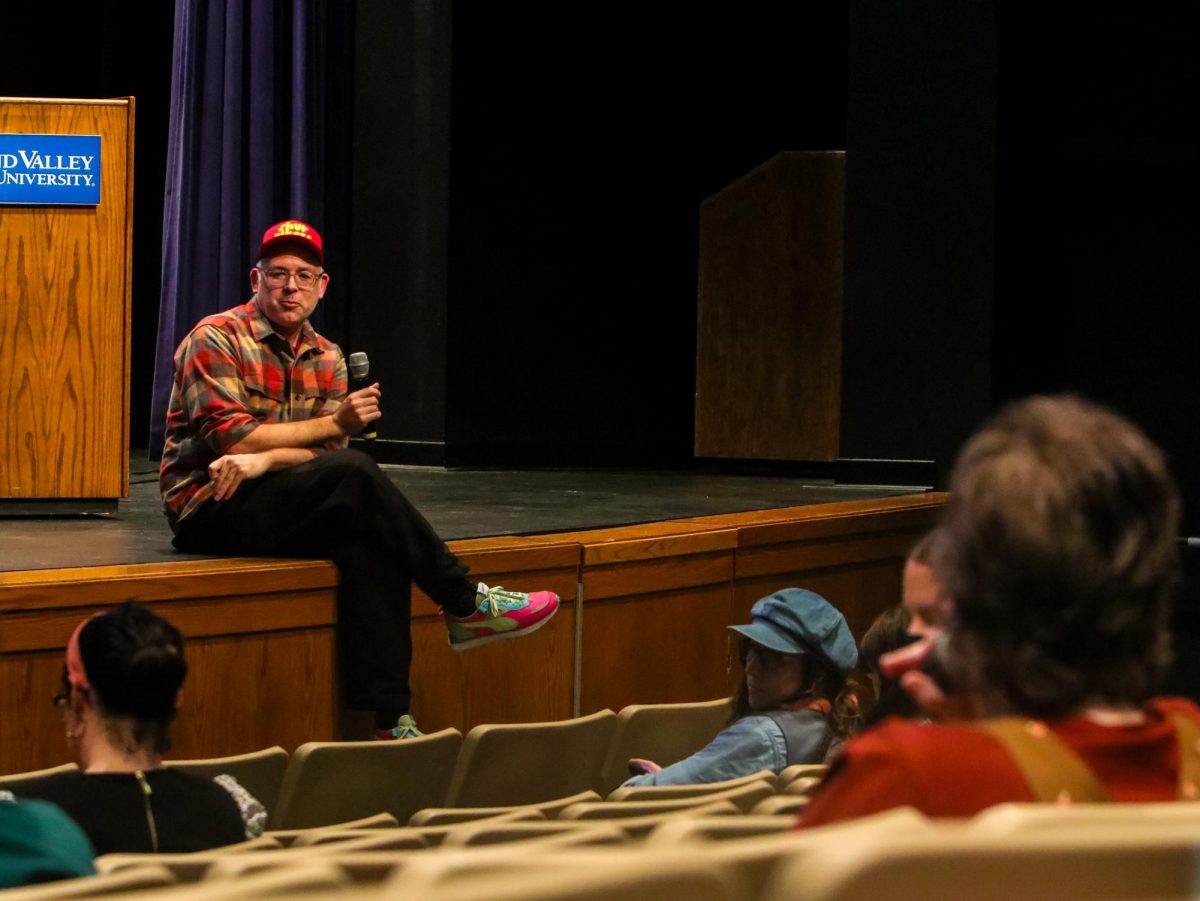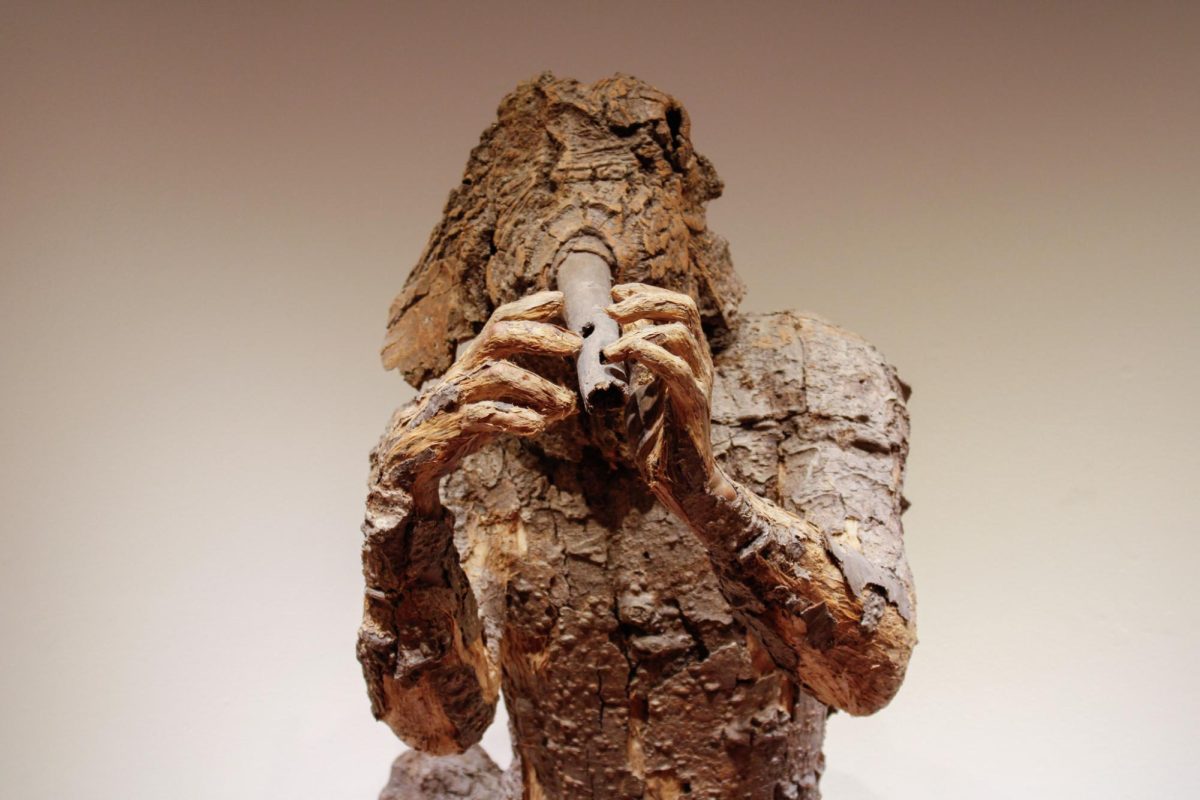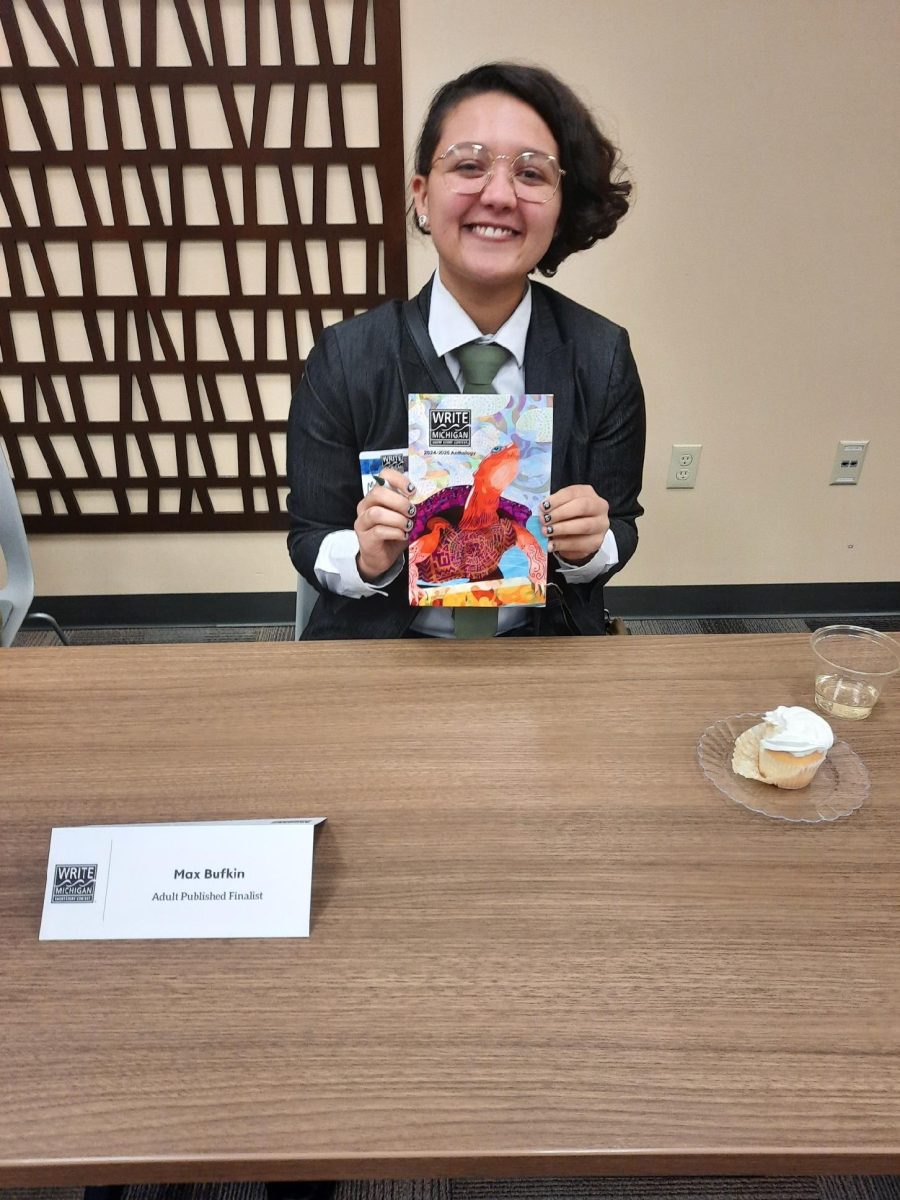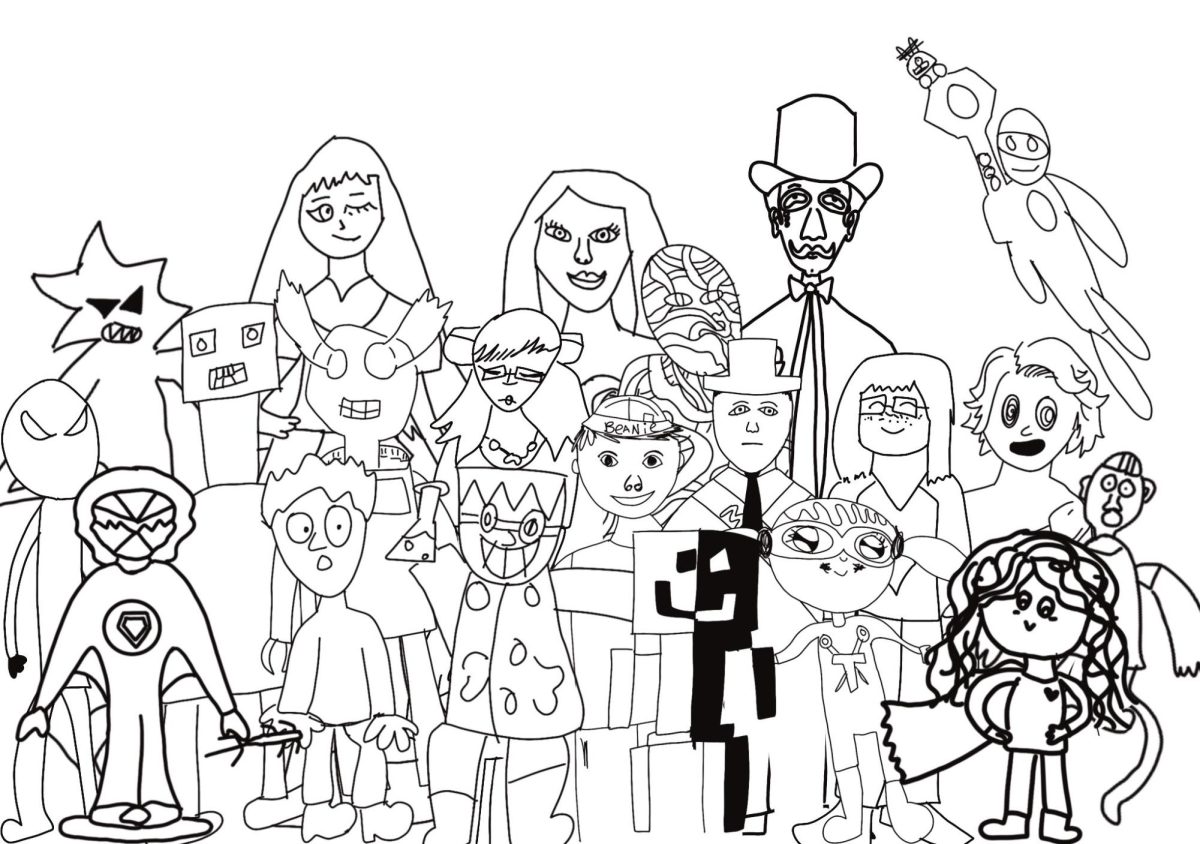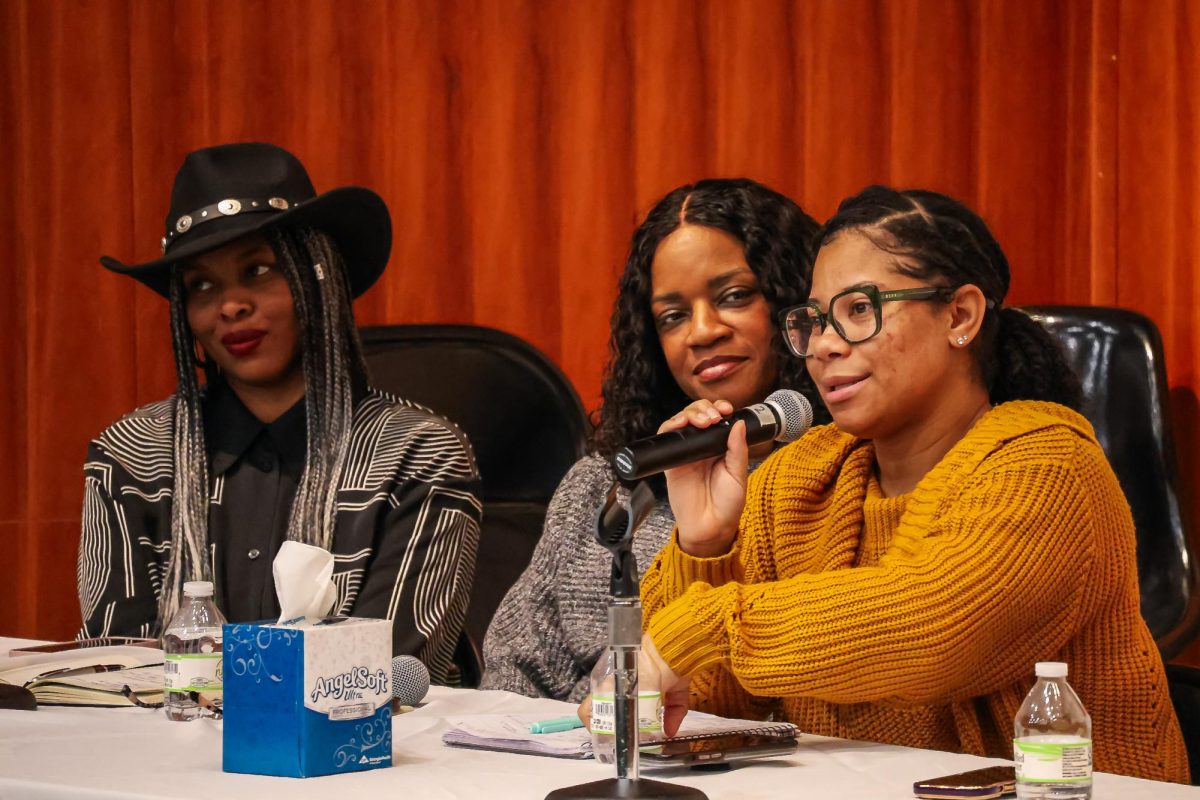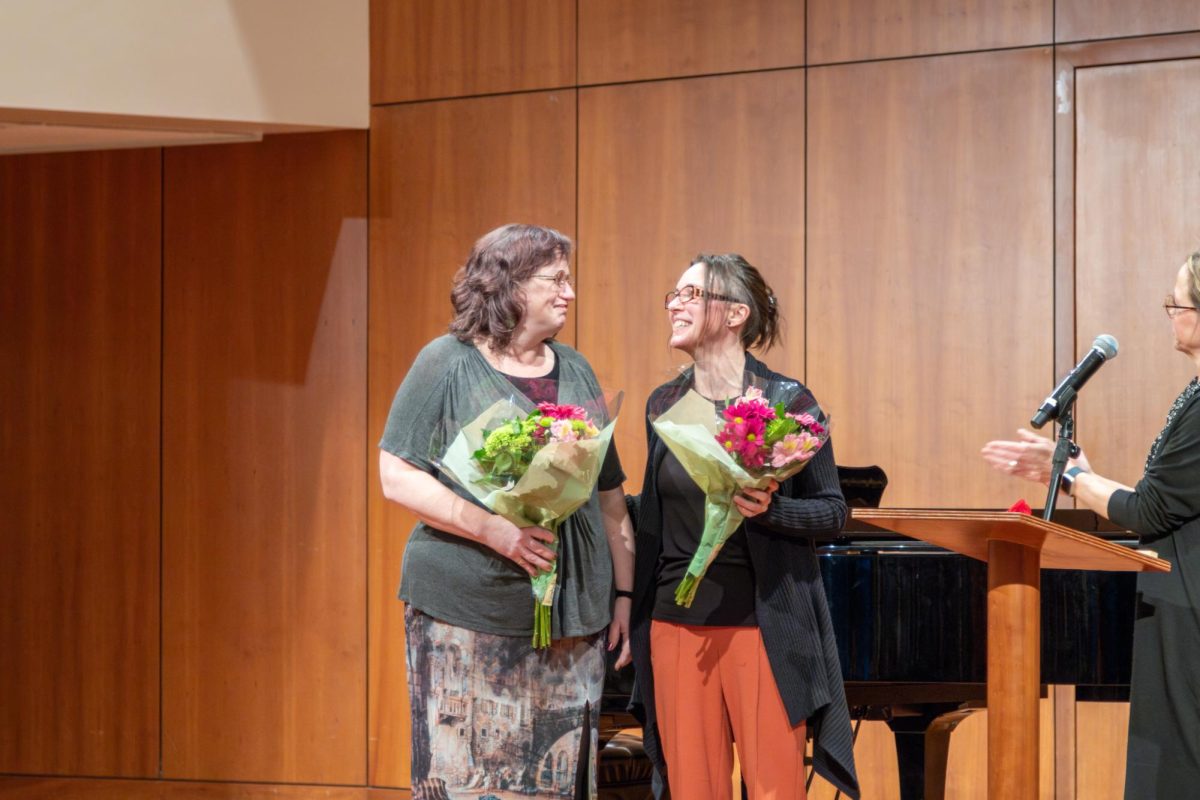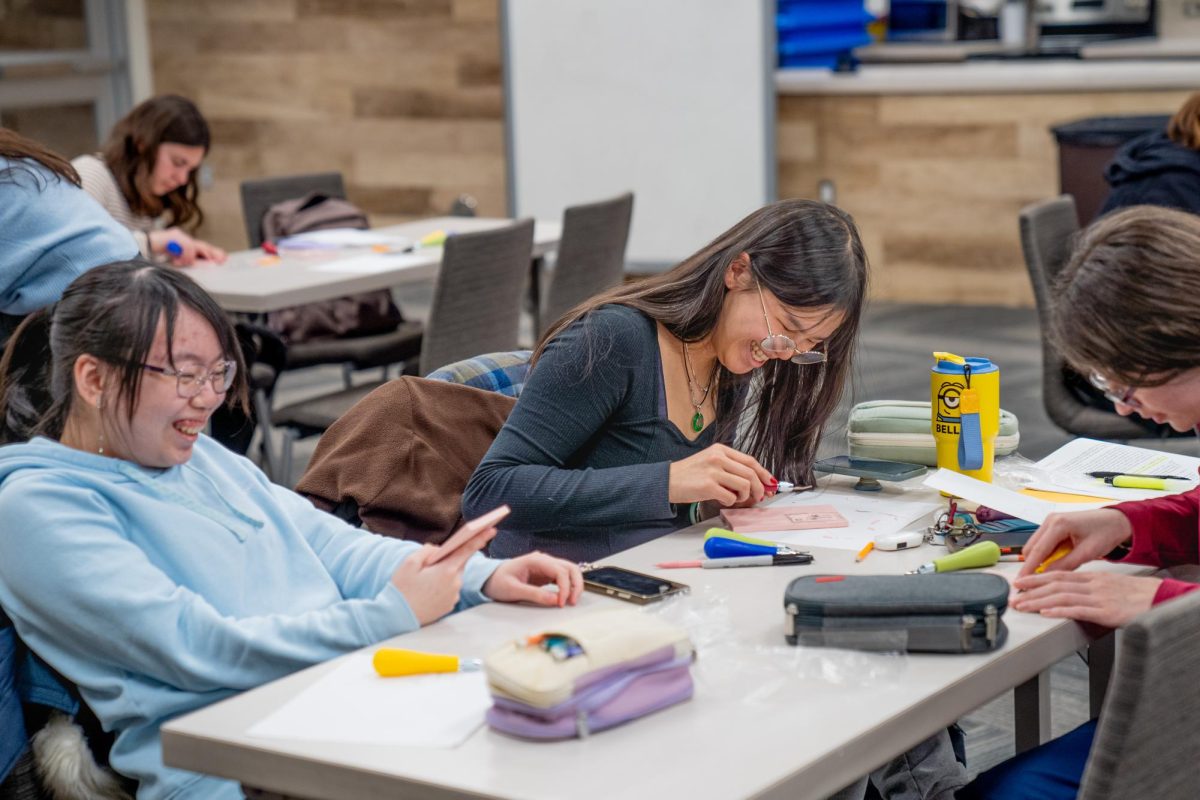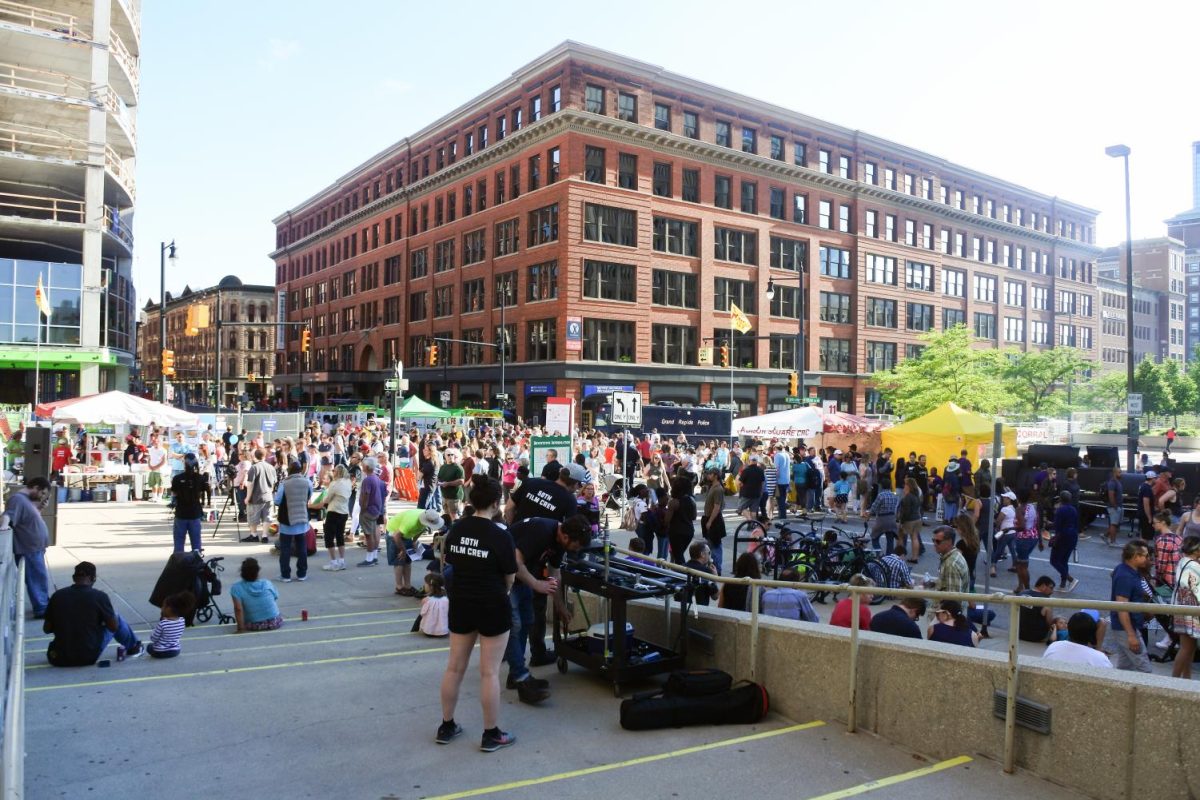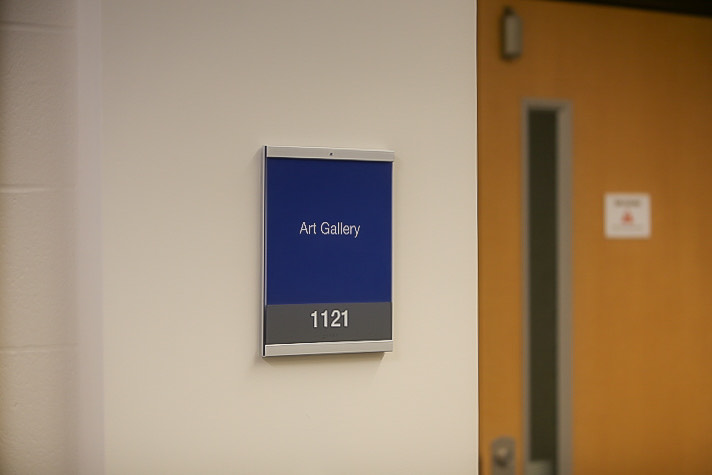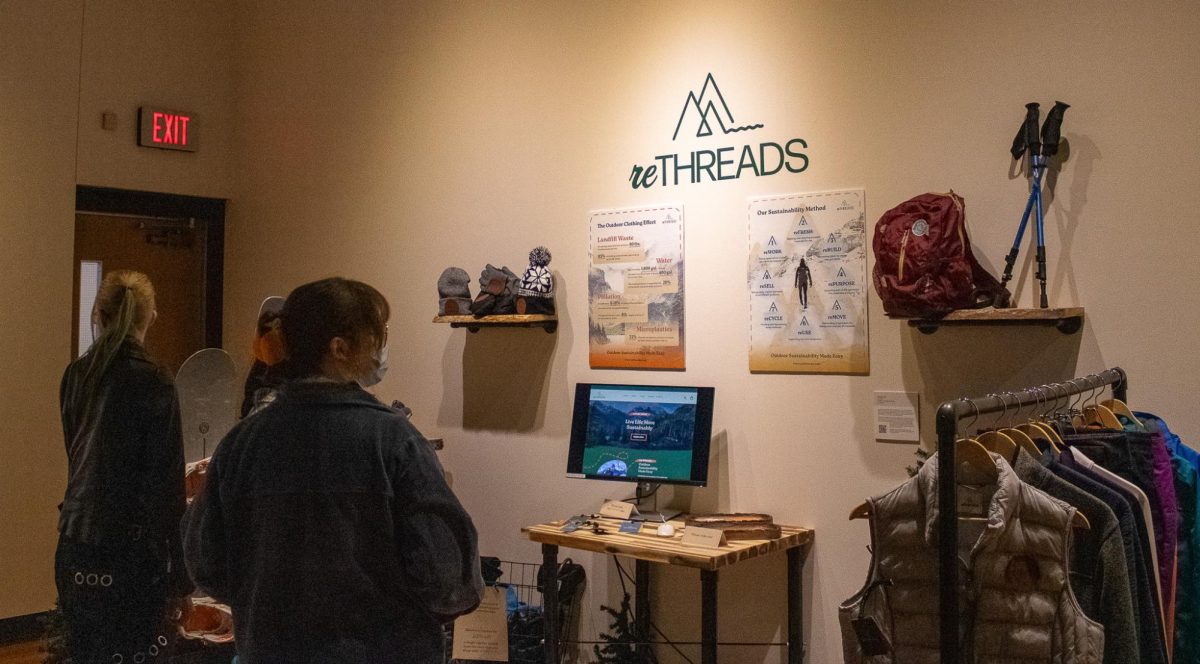In concurrence with the upcoming presidential election, artist, political activist and Justseeds founder Josh MacPhee was hosted by Grand Valley State University’s Department of Visual & Media Arts from Oct. 29-30, as part of the University’s Arts Celebration. MacPhee presented and spoke with students on Oct. 29, and was joined by a variety of other artists on Oct. 30 for a larger discussion about activism and artwork.
On Oct. 29, the New York artist showcased political artwork and explained the concept surrounding his book “Graphic Liberation: Image Making and Political Movements.” “Graphic Liberation” evolved from interviews he conducted with other artists while working in Chicago. Basing his presentations on the book, he brings the conversation of political art to college campuses, where students are often confronted with deep social and political issues.
MacPhee showed the audience a collection of artwork that has been used in social movements, notably his work in the “Close Rikers” campaign. The campaign was founded by a New York group that has fought against mass incarceration for decades.
Due to being raised by an art teacher, MacPhee has been involved in the arts from a young age. He became engaged in his local punk scene in middle school. Since he wasn’t a musician, he designed album covers and merchandise designs. From that moment on, MacPhee was engaged in community art, which led to involvement in political movements and their associated conversations.
During his presentation at GVSU, MacPhee explored the history of art and its crucial role in what he called “social movement culture.” MacPhee said that by utilizing art as a tool for social expression, the community can become stronger and initiate important social change. From this idea, the yearslong project and philosophy for “Graphic Liberation” came to be.
“There are microcosms of the problems in the larger world, and I think these are skills (the making of political art) that are very accessible to students (who) want to grapple with the struggles they’re having on their campuses,” MacPhee said.
MacPhee added that artwork with a widespread and lasting impact is often collectively owned and authored. This way, art can be distributed and utilized without barriers of pay or copyright, and he encouraged students to explore similar options within independent artistry.
MacPhee emphasized that students have the power to make collective change.
“Your futures are being decided by a bunch of people that are in their 60s, 70s and 80s,” MacPhee said. “This (sharing his experiences and advocating) is something that I care deeply about.”
Donovan Anderson, the interim dean of the College of Liberal Arts and Sciences at GVSU, said that MacPhee brought a powerful message with great timing, considering what is happening in the world today.
“I think this call to action and call to engagement means a lot to this generation of students who are faced with lots of anxiety about the crisis(es) in the world and anxiety around the election,” Anderson said.
Anderson added that MacPhee’s visit curated an important conversation with students about how art is studied and interacted with.
“A lot of times, we learn about art (and) we study (it as) ‘art for art’s sake,’” Anderson said. “I think what’s really fascinating about the work that (MacPhee) does is (how) he says ‘this art only becomes meaningful in the movement when it engages an audience and forces an audience to create community, and to maybe even lead to action.’”
Both Anderson and MacPhee said that inspiring students to take political action is of utmost importance, and that encouraging them through the medium of art is another way to become involved.





